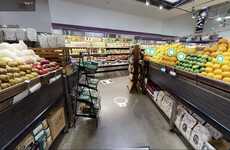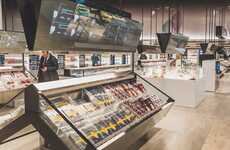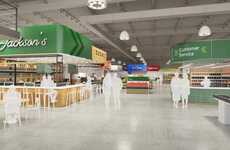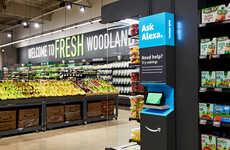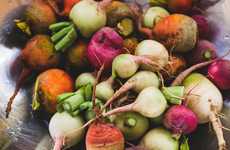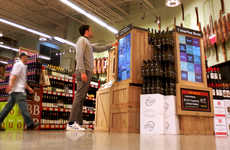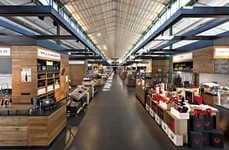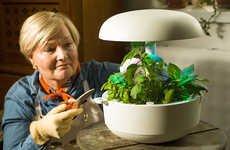
The Future Market Guesses What Grocery Stores Will Be Like in 2065
Alyson Wyers — October 1, 2014 — Lifestyle
References: thefuturemarket & fastcoexist
The Future Market is a pop-up shop that imagines what a grocery store and its products will look like in the year 2065 -- almost 50 years from now. The pop-up grocery store doesn't exist yet, but will be open in New York City next year.
A group of designers are collaborating with food industry professionals to bring The Future Market to the public. The team conceptualizes the 2065 grocery story to have a digital food ID that informs the retail space of your allergies, preferences and diet requirements. A touch screen could let you order the items you need; perhaps your produce will come from hydroponic farms. The team also imagined fake groceries inside, including Crop Crisps.
A group of designers are collaborating with food industry professionals to bring The Future Market to the public. The team conceptualizes the 2065 grocery story to have a digital food ID that informs the retail space of your allergies, preferences and diet requirements. A touch screen could let you order the items you need; perhaps your produce will come from hydroponic farms. The team also imagined fake groceries inside, including Crop Crisps.
Trend Themes
1. Digital Food Identification - The concept of digital food identification could disrupt the way grocery stores interact with customers in the future, providing personalized service and catering to individual dietary needs.
2. Hydroponic Farming - With the growth of hydroponic farming, the future of grocery stores could see a significant increase in locally sourced and sustainable produce, disrupting traditional supply chains.
3. Virtual Grocery Shopping - Virtual grocery shopping through a touch screen interface could offer convenience and increased accessibility to customers, and could disrupt the brick-and-mortar grocery store experience.
Industry Implications
1. Food Retail - The food retail industry will need to adapt to changing customer needs and technological advances, providing greater convenience, personalization and sustainability.
2. Farming - The farming industry will face pressure to shift towards more sustainable and locally-sourced practices as grocery stores adapt to meet changing consumer preferences and demands.
3. Technology - The technology industry can leverage advancements in AI, touch screens and digital food identification to disrupt the traditional grocery store experience and provide greater personalization and convenience.
5.9
Score
Popularity
Activity
Freshness



